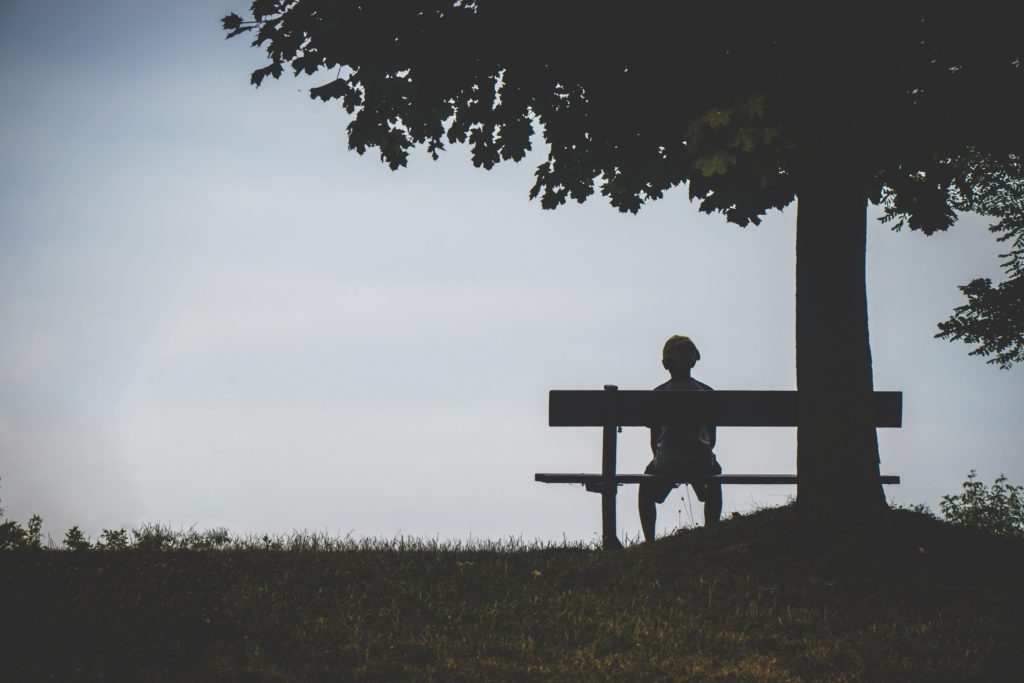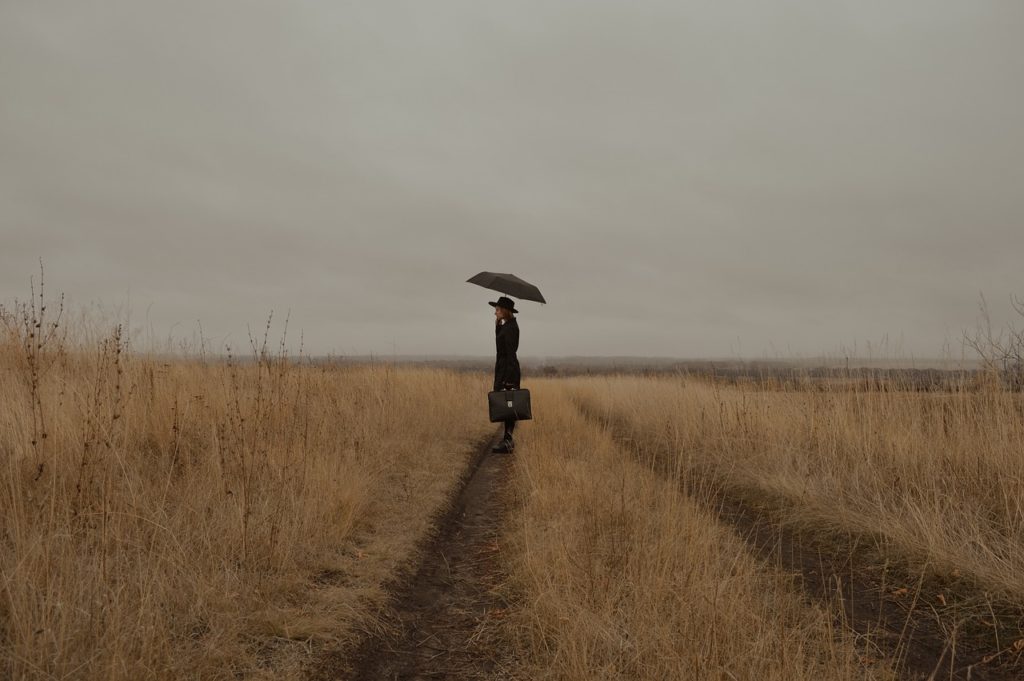When I first moved to Istanbul in 2016, I too experienced loneliness. After all, I was a foreigner in a new country, who did not speak the language and didn’t know anyone in Istanbul. Despite being okay with spending most of my time by myself, it was tough to navigate this new life without anyone to share this experience with, or for anyone to witness my growth in this new environment; especially when every accomplishment feels like a milestone. Plus, there is so much you could express through a voice or video call, or text, with family and friends back home.
Looking back at it now, I don’t think it was that bad (for me, at least). I am glad that I was able to overcome the many obstacles I faced during these eight years. But back then, there were times, I just wanted to.. well, talk. The topic didn’t even matter, as long as it happened.
With winter’s shorter days and longer nights – as well as our need to seek shelter and comfort in our cozy homes – we could feel much more susceptible to our feelings of loneliness, which may drag us into self-isolation. As we approach the last (and most intense) month of winter, I wanted to shine some light on loneliness and how we can protect ourselves from it. And I cannot think of a better time to address this unspoken struggle we foreigners often face. Hang on tight, this is going to be a long read!

The Dangers of Loneliness
Loneliness has been studied quite extensively over the past few decades. However, in recent years, there has been significant attention given to the issue of loneliness, especially how it affects both the younger and older generations. And while some people are/were fortunate to be with family and partners, others are/were facing this crisis alone. Just recently, the WHO declared loneliness as a global public health concern, stating that it poses health risks comparable to smoking 15 cigarettes per day. (Even for smokers, almost a pack a day is excessive!)
Physically, loneliness causes an increase in chronic pain, can disrupt one’s sleeping patterns, as well as compromise one’s immunity system. Psychologically, loneliness is associated with a lack of motivation, an increased risk of developing depression and anxiety, and potential cognitive decline. Loneliness among seniors can cause hastened development of dementia and early mortality. Loneliness can also cause increased hostility towards others, which could again result in a never-ending cycle of self-isolation.
Pftt.. How can anyone still be affected by loneliness in a post-pandemic world?
Just because we are not restricted by law, and can go out and meet people, does not mean we cannot feel lonely in the company of others. People all over the world felt susceptible to feelings of isolation, homesickness, and loneliness, notably some of the most prominent psychological difficulties people developed during the pandemic, and were forced to grapple with while forced to stay at home.
COVID brought about a lot of changes, especially with the introduction of lockdowns, social distancing, and remote work; all of which became the norm, as these measures were mainly implemented to promote public health. People were physically separated from their social support networks, be it friends, family, and/or colleagues. These seemingly harmless measures to minimize fatalities and the further spread of the disease contributed to increased feelings of loneliness. As the restrictions eased, and even today, the aftermath of the pandemic has posed some challenges for some to communicate, reconnect, and rebuild their social lives.

Foreigner Loneliness
You know that phrase: Feeling lonely in a crowded room? With that in mind, we have to acknowledge that loneliness is more than the physical state of being alone. It is a state of mind where people may feel a lack of meaningful connections with people who understand, value, and appreciate them. While anyone can experience loneliness, foreigners who actively navigate an unfamiliar environment, while experiencing issues such as language barriers, cultural differences, homesickness, and a distant support network, are a lot more susceptible to feeling lonely. Missing home, our people, our food, or simply the sound of our language could give us more of a reason to isolate ourselves.
Across my years working as a therapist with foreigners, I would often hear my clients state how they struggle with meeting new people, maintaining friendships, or adapting to the Turkish culture. One thing I can confidently say: We foreigners are no strangers to loneliness and all the feelings that come along with it. (This, of course, applies to all foreigners, regardless of the country they decide to settle in).
We may have experienced loneliness multiple times during our stay in Türkiye. Loneliness may have been something we have/had to constantly battle with. Sometimes, we may even experience other ‘cling-on’ emotions such as regret, and scolding ourselves because we chose to leave our countries in the hopes of finding something better elsewhere, be it work, life, love, or self-exploration. It is our fault we put ourselves into this situation. Or we may play the comparison game, and feel ashamed because our friends happen to be settling quite well into the culture, but we so clearly are incapable. Each emotion may give rise to something else, and since our minds are universes, our thoughts, beliefs, and insecurities, could be exaggerated beyond proportion. But unfortunately for us, this can do more damage than good.

Coping with Loneliness: Taking matters into your own hands
Yes, post-pandemic loneliness requires a multi-faceted approach, which mainly requires the involvement of community initiatives, support groups, and access to mental health resources. Here are some initial steps you can take to personally support yourself on the days you do feel lonely:
- Acknowledge the feeling(s): Human beings are social creatures, and although we wouldn’t want to admit to ourselves that we may be lonely, we have to remind ourselves that it is okay for us to feel this way. If it helps, remind yourself that loneliness – like other feelings – can be temporary and will eventually come to an end.
- Accept your feelings: With a little self-awareness and engaging in some honest self-talk, accept how you feel. Your feelings are valid and if they make you feel a certain way, you should take responsibility to comfort yourself throughout the process.
Pro-tip: You won’t be able to heal your wounds if you don’t treat them with kindness and understanding, which is why it is important to practice compassion with yourself at this step. Ask yourself: Is there anything I am not doing to help myself? Is there any way I may be preventing myself from feeling a little less lonely? Are there any habits that may be contributing to these negative feelings?
3. Act accordingly: Accepting your feelings is one thing, but taking action to support yourself and minimize those negative feelings is another. We are responsible for ourselves and how we feel. That responsibility also includes finding effective solutions to our problems.
Ask yourself: What are some ways I could make myself feel less lonely? What should I be doing differently this time? What external opportunities do I have at hand to help me cope with loneliness?
4. Support yourself on a basic level: Establish a routine, set goals, prioritize your overall well-being, and practice self-love.

Coping with Loneliness: Seeking external help
To support the work you do internally, you should feel free to seek external assistance. Seeking help does not make you weak, neither does it symbolize your inability to cope on your own. Here are some ways you can help yourself strengthen the inner work you worked on:
-
- Seek and participate in clubs or groups: Find like-minded individuals just like yourself at trusted community events and activities, such as those organized by Yabangee. Stay tuned for new events (such as Language Exchange, Trivia Nights, etc.) on their website, Facebook, Instagram, and X pages.
- Be yourself: Be open to expressing and sharing the unique aspects of yourself to foster meaningful friendships. Do recognize and consider the balance between being both cautious and approachable.
- Initiate social interactions: Sometimes, you can engage with neighbors, and regulars at your local coffee shop, on walks, or at events. Again, practice vigilance and safety.
- Keep in touch with loved ones back home: Just because you are not physically with your friends and family, does not mean that you shouldn’t work to maintain those relationships. Schedule weekly video and voice calls, to stay up-to-date and catch up.
- Conduct social activities online: Plan and participate in game nights, movie nights, and online breakfasts/lunches/dinners. Utilize the technology you have effectively to check in with loved ones and also to have a good time.
- Engage positively with others: When out and about, greet, smile, and engage with strangers. Small gestures go a long way for the doer and the receiver.
- Seek professional help: Contrary to common belief, you do not need to get to a *really* bad place to seek help from a therapist. Therapists can help you navigate through bumpy terrain, and assist you with any difficulties you may be experiencing. With therapy, the least you can gain is a changed perspective, increased resilience, and a stronger mindset. So, why not?
- Offer a helping hand to those who may be struggling

Being comfortable in being alone: The difference between loneliness and solitude
People often confuse loneliness with solitude, sometimes even, using them interchangeably. Loneliness is the state of sadness resulting from feelings related to the lack of company or friends. It is the state of feeling like you lack connection with friends, family, and other people like yourself.
Solitude, on the other hand, has a completely different meaning. Ever wanted to rush home and seek distance from people because your social battery was drained? Solitude is being comfortable in being on your own, prompting and participating in opportunities for self-care, self-exploration, self-reflection, and self-conservation. That is healthy and much-needed. I not only encourage it to my loved ones (my clients included) but unapologetically partake in it myself. Solitude is a great way to improve the relationship you have with yourself, based on trust, love, compassion, and appreciation.
There is nothing wrong with wanting to spend some quality time with yourself, far from people. You need to invest your energy into yourself too. You shouldn’t feel inclined to do so only when you feel overwhelmed, but it should be part of your routine; especially when you want to utilize your time to better know yourself and to enjoy your own company.
How to practice solitude
Sometimes, we may have little or no access to some external resources. Sometimes, we feel like we need to work on ourselves as well; it’s okay to take care of yourself too. Here are some ways to improve and/or engage in building a trustful and resilient relationship with yourself:
- Tell yourself it’s okay: Wanting to be alone is okay. Wanting to be away from people is okay. Choosing yourself is okay. Your purpose is much more than making sure people are pleased with you and/or your behavior towards them. Once you take care of yourself, you will be able to better take care of your loved ones.
- Place your boundaries: If you had planned to spend the day or time on your own, engaging in an activity you like, so be it. You must make that time for yourself, always. Please refer to step one.
- Engage in activities you enjoy (even if done alone): Never have I met someone who complained or regretted doing something nice for themselves. Time spent doing something you love on your own is always time well spent. Whether it is dancing, getting creative, or working on a project, you can’t go wrong with fun.
- Incorporate some physical self-care: Cook yourself a nice meal (especially one with sentimental value), move your body, and practice mindfulness.
- Establish a self-care routine: Choose a particular day or hour to engage in some effective solitude work. We have 24 hours in a day. It is okay to set aside a few hours for ourselves.

Final thoughts
As a society and as individuals, we need to recognize the struggles of loneliness within our community. We, foreigners have it rough, and regardless of the season, we must actively protect, advocate for, and support each other.
Developing a sense of duty towards others can help us foster a community of understanding and empathy. In turn, we can build and provide a safe, accepting, and inclusive place for all present and those to come.
Winter can be a tough season, and many of us could be longing for the warm embrace of the sun. This chilly, rainy, and snowy season can challenge our resilience. Use its last month as an opportunity for introspection, self-discovery, and growth. Reconnect with old hobbies or start something new to keep your mind engaged and your spirits high. Plan cozy indoor activities that break the monotony of winter. Simply exist, hot beverage in hand. Be kind to yourself this season, and emerge stronger from your frosty cocoon. Seasons come and go, and lucky for us, Spring is just around the corner.









